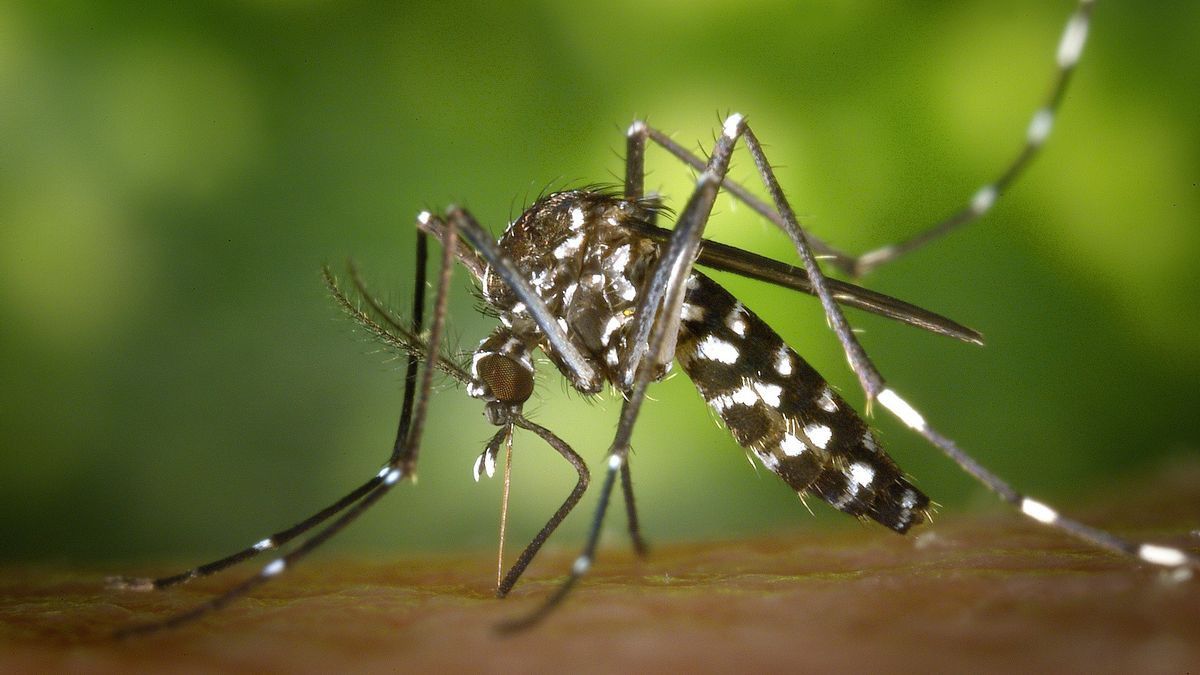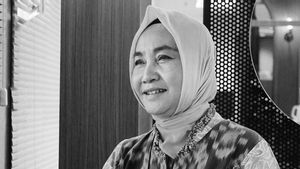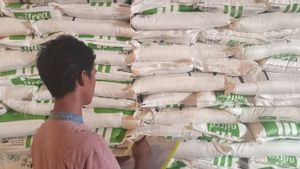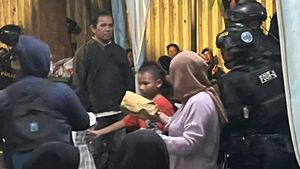JAKARTA - The DKI Jakarta Provincial Government will begin releasing wolbachia mosquitoes on October 4. The location for the first phase of the sprinkling of spheroidal mosquitoes is carried out in RW 7, North Kembangan Village, Kembangan District, West Jakarta.
In its distribution later, the DKI Jakarta Health Office will place buckets containing hundreds of mosquito eggs each. The Health Office targets as many as 1,474 buckets to be placed there.
"So it has been mapped, mapped, determined how many meters are there. There is a bucket, covering an area of 50x50 square meters. So, every 50x50 square meters, a bucket must be placed," said Head of the DKI Jakarta Health Office Ani Ruspitawati to reporters, Thursday, September 26.
Later, the bucket will be monitored by local residents who are called foster parents. The foster parents will be tasked with ensuring the mosquitoes in the buckets can hatch.
He said that around 800 residents are ready to become foster parents of the bisabachia mosquito. The guard over the spread of this marijubachian mosquito was also accompanied by the ranks of the DKI Health Office and jumantik cadres.
"This foster parent is very important to keep this bucket up to 2 weeks before its release, he is safe. So, when it was released it was still in good condition, it didn't throw its contents away. That's actually the task," said Ani.
Ani estimates that only about 80 percent of the total eggs in one bucket hatch. After that, theferobachia mosquito was released again periodically in the same location for 6 months.
The DKI Health Office targets the population of bisabachia mosquitoes in Kembangan 6 months later as much as 60 percent of the total existing mosquitoes.
"We will see how many percent of those who are positive containfermbachia or not. So the mosquito is caught, continues to be PCR, checked in the laboratory whether it contains miliarine or not. Then we compare it between being arrested and finding out how many percent have wolbachia," explained Ani.
Separately, Kembangan sub-district head Joko Sukarno admitted that the highest number of dengue cases in Jakarta was in his area. Thus, the government prioritizes the region with the highest distribution of dengue fever such as in Kembangan as the first location for the spread of bifurcation.
"Through various aspects of the assessment, (Regions) are among the high cases of dengue fever. So, it is recommended that Kembangan District be the pioneer of the wolbachia mosquito program," said Joko.
To note, dengue control is carried out first by inserting Wolbachia bacteria into Aedes aegypti mosquito eggs.
SEE ALSO:
When the male aedes aegypti mosquito with wolbachia mates with a wild female mosquito without bibliography, the dengue virus in the female mosquito is blocked, so that the eggs do not hatch.
In Indonesia, male and female mosquito eggs are put in a bucket that is placed in a resident's house. Then mosquitoes will reproduce and produce a population of Aedes aegypti mosquitoes in a maritime environment.
The English, Chinese, Japanese, Arabic, and French versions are automatically generated by the AI. So there may still be inaccuracies in translating, please always see Indonesian as our main language. (system supported by DigitalSiber.id)
















